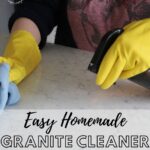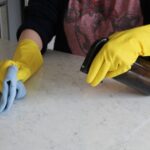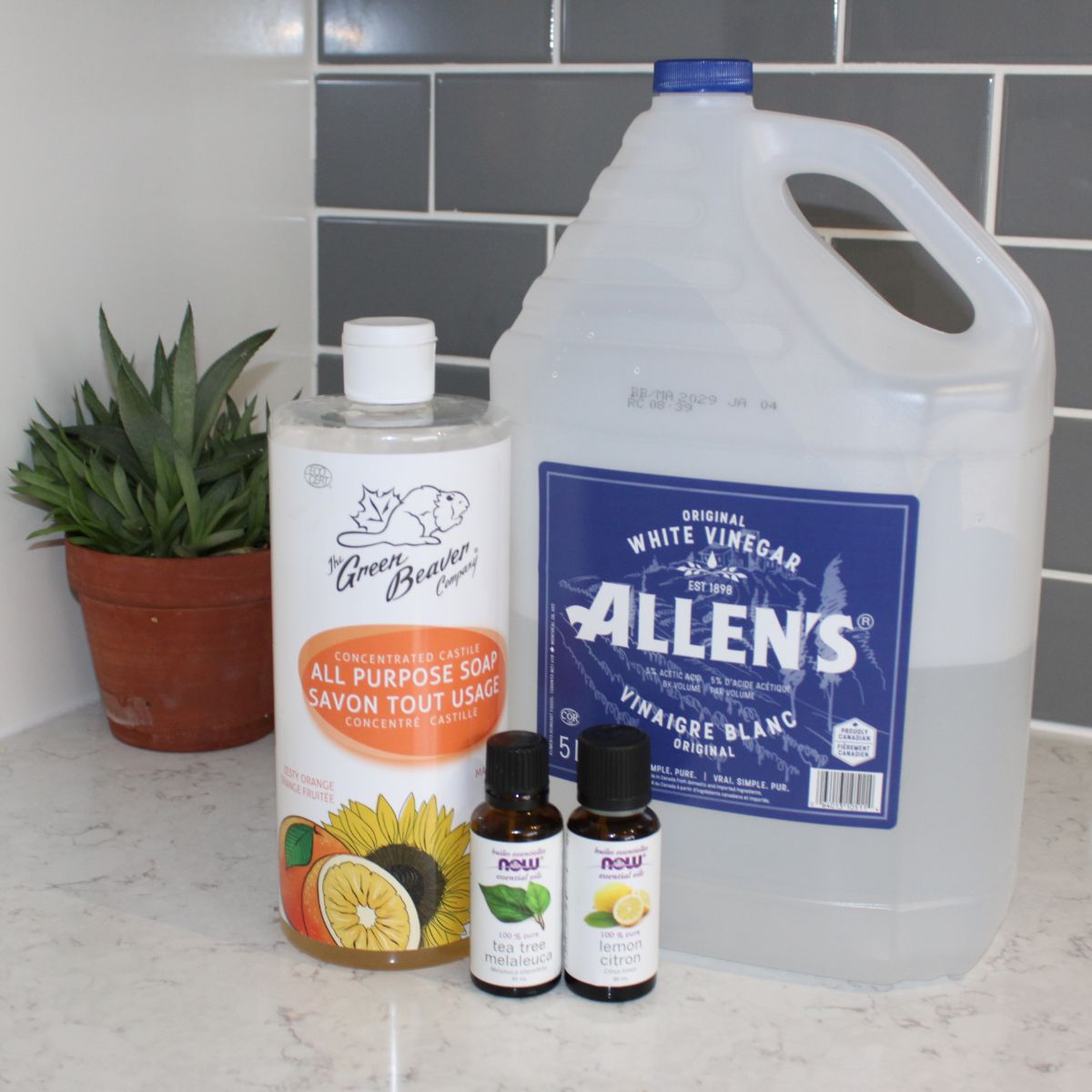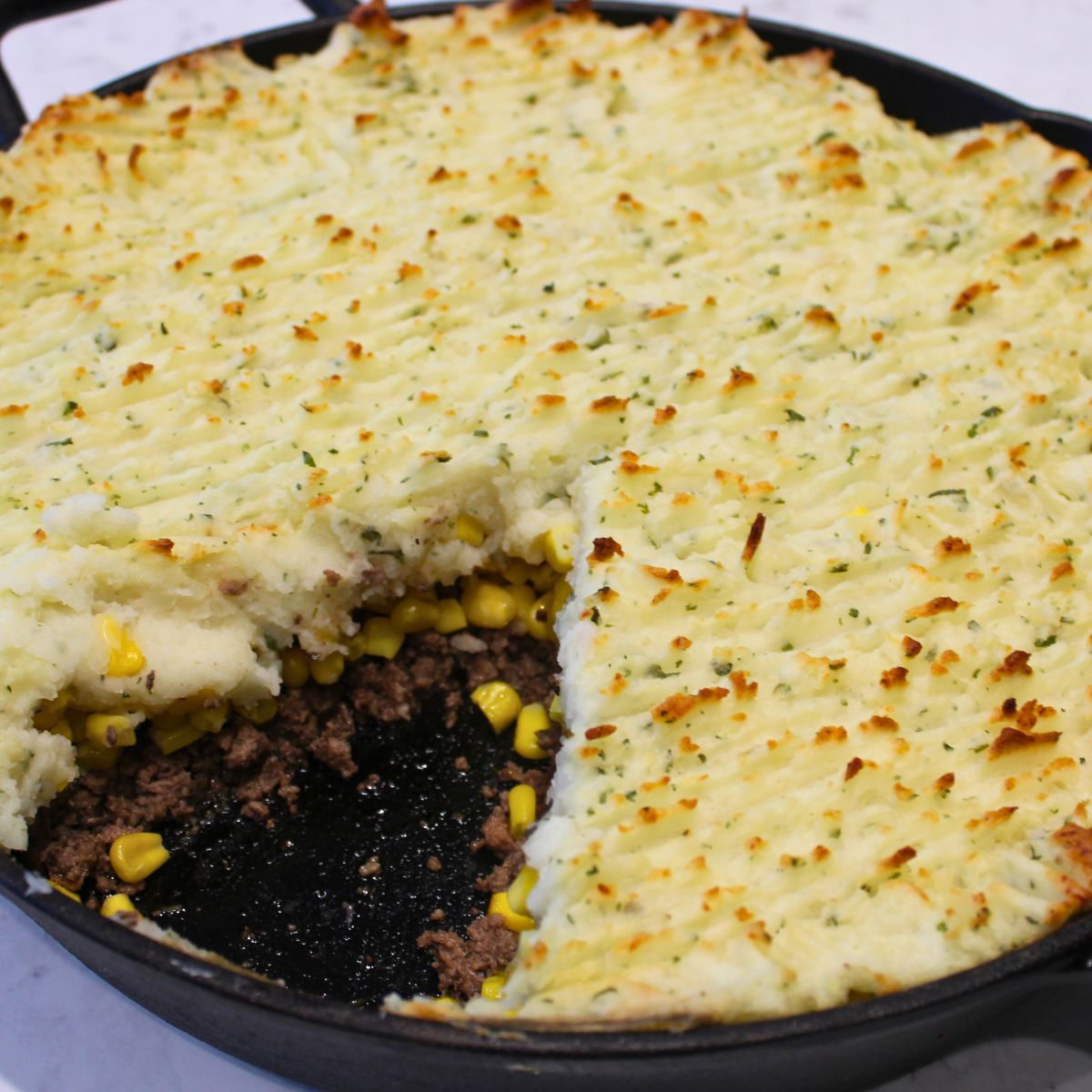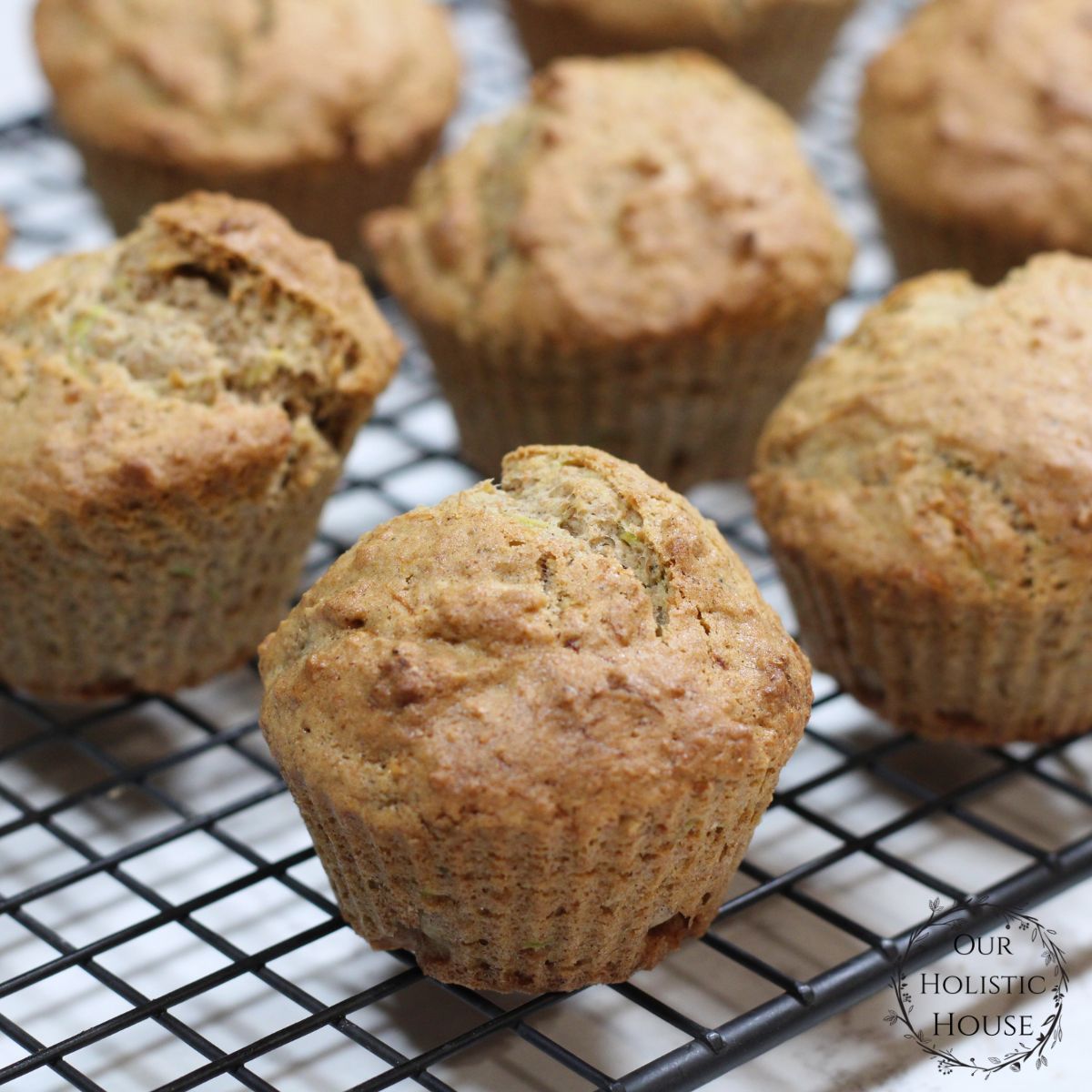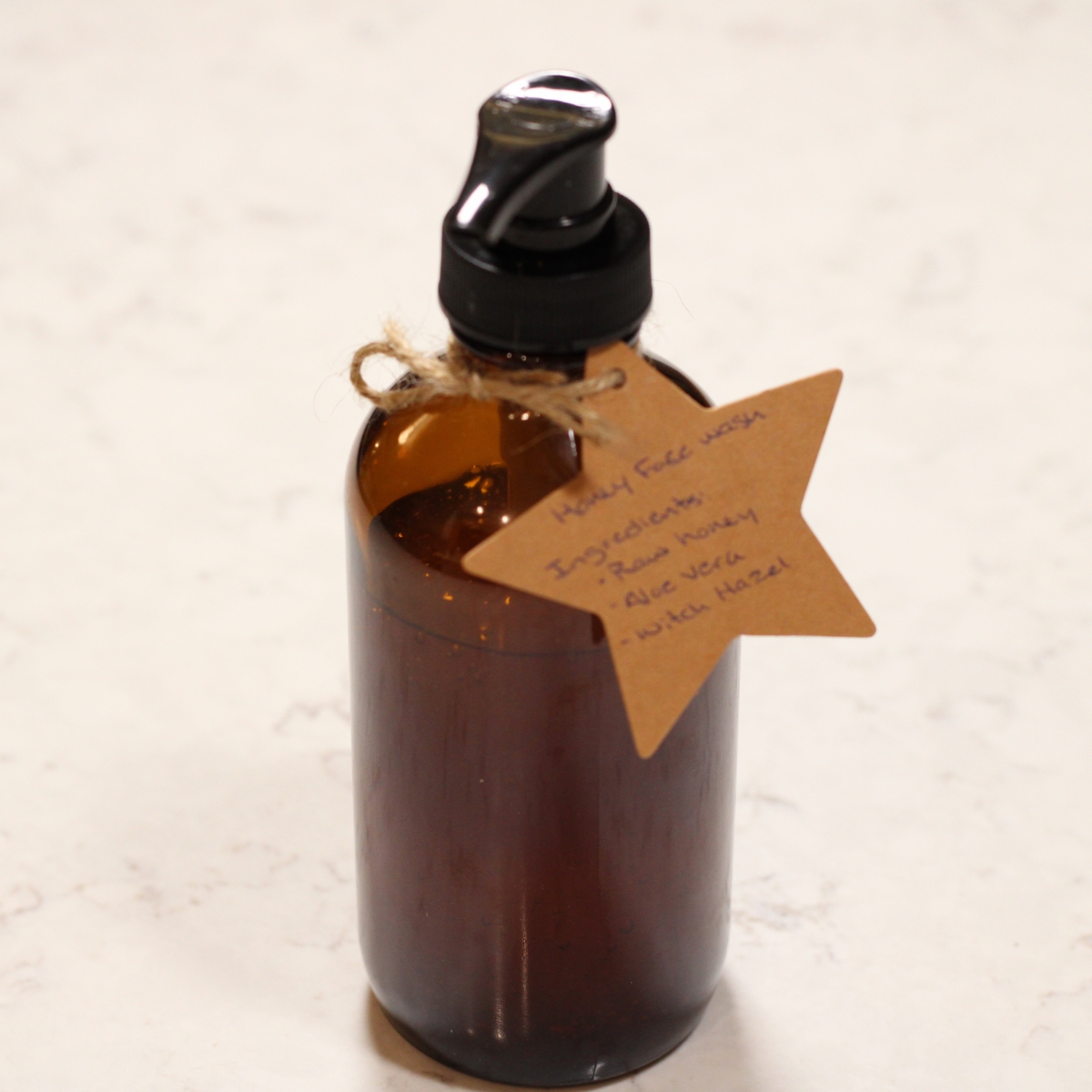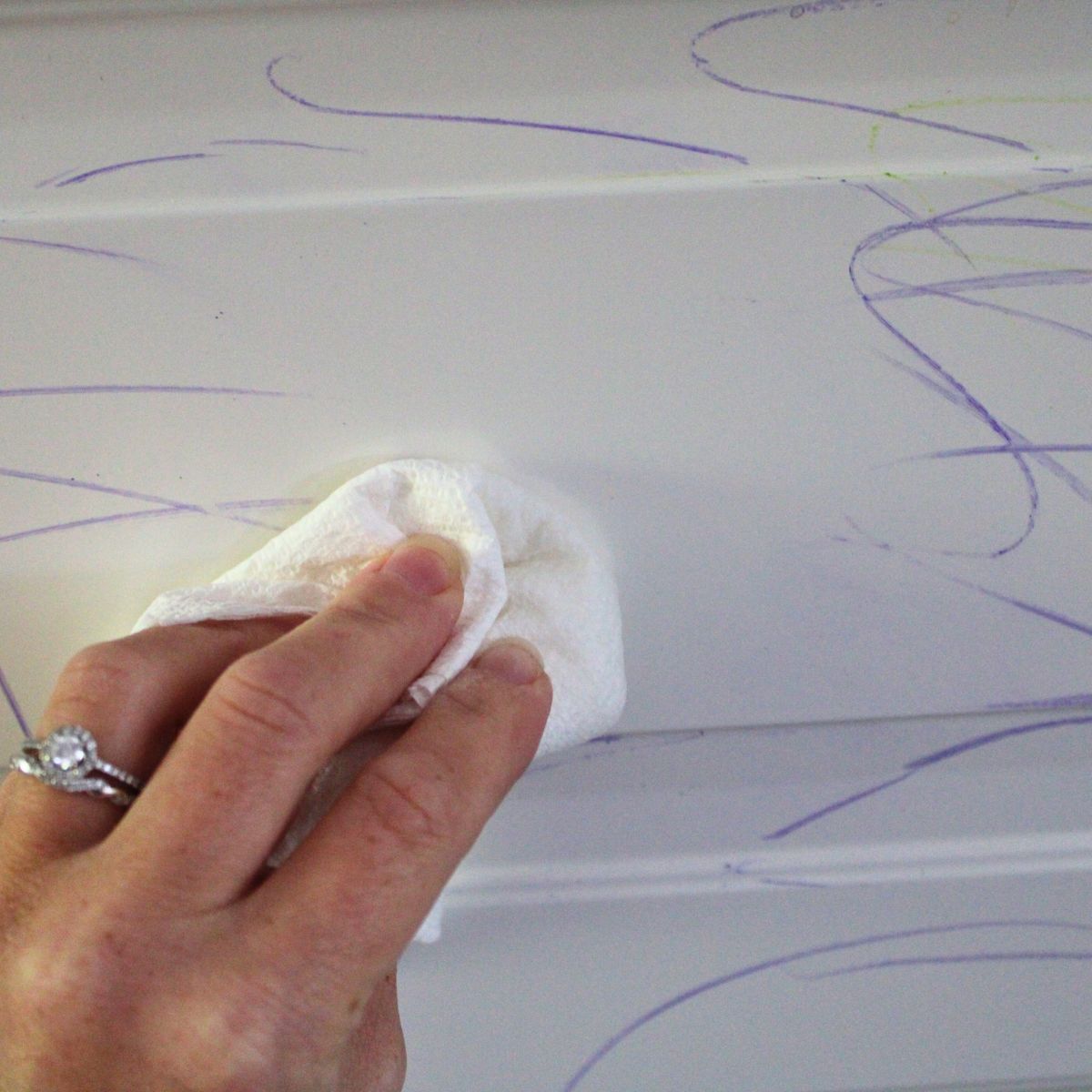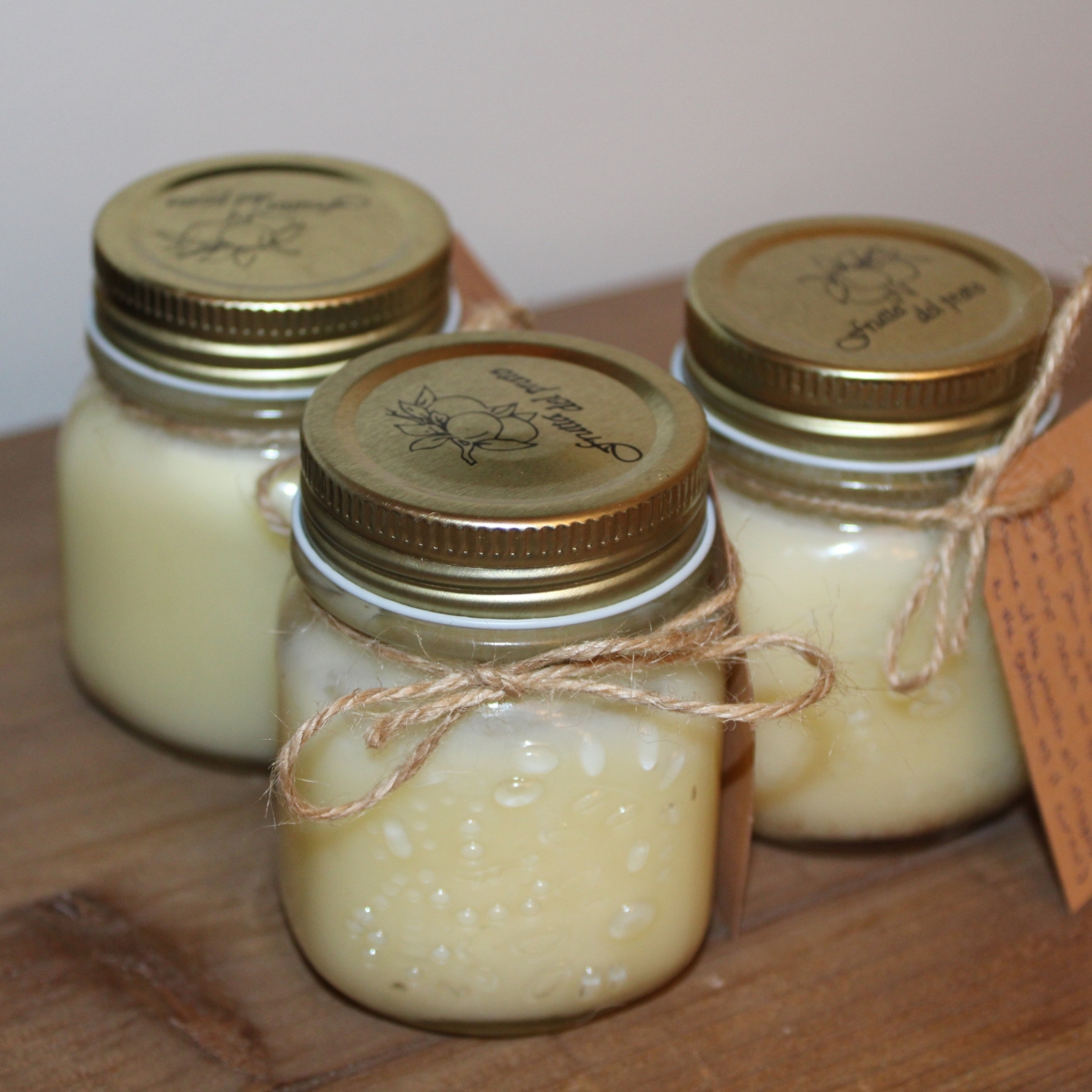Easy Homemade Granite Cleaner (Alcohol Free!)
Maintaining the luster of your granite counters (and other natural stone surfaces) without resorting to harsh chemicals or expensive granite cleaners can often feel like a daunting task. Store-bought cleaners may promise shine but often come with a list of ingredients that leave you questioning their impact on your family’s health. This alcohol free Homemade Granite Cleaner uses gentle, and natural ingredients to maintain that gorgeous granite shine, leaving them sparkling clean and streak-free. Plus, it’s safe for both the environment and your family!
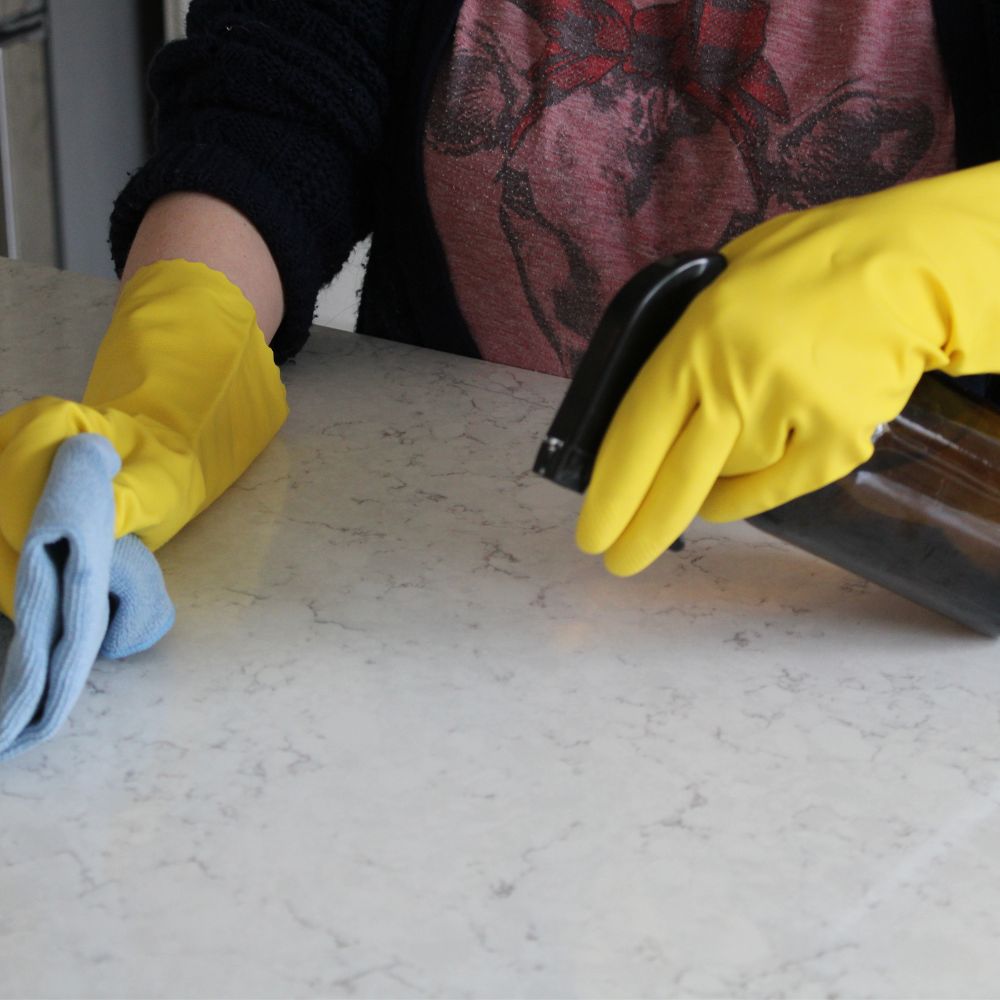
For more homemade cleaning solutions check out this All Purpose Cleaner. While our vinegar-based all purpose cleaner is not suitable for stone counters as the acetic acid affects granite’s finish, it is my favorite go to recipe for nearly all other household surfaces!
Ingredients
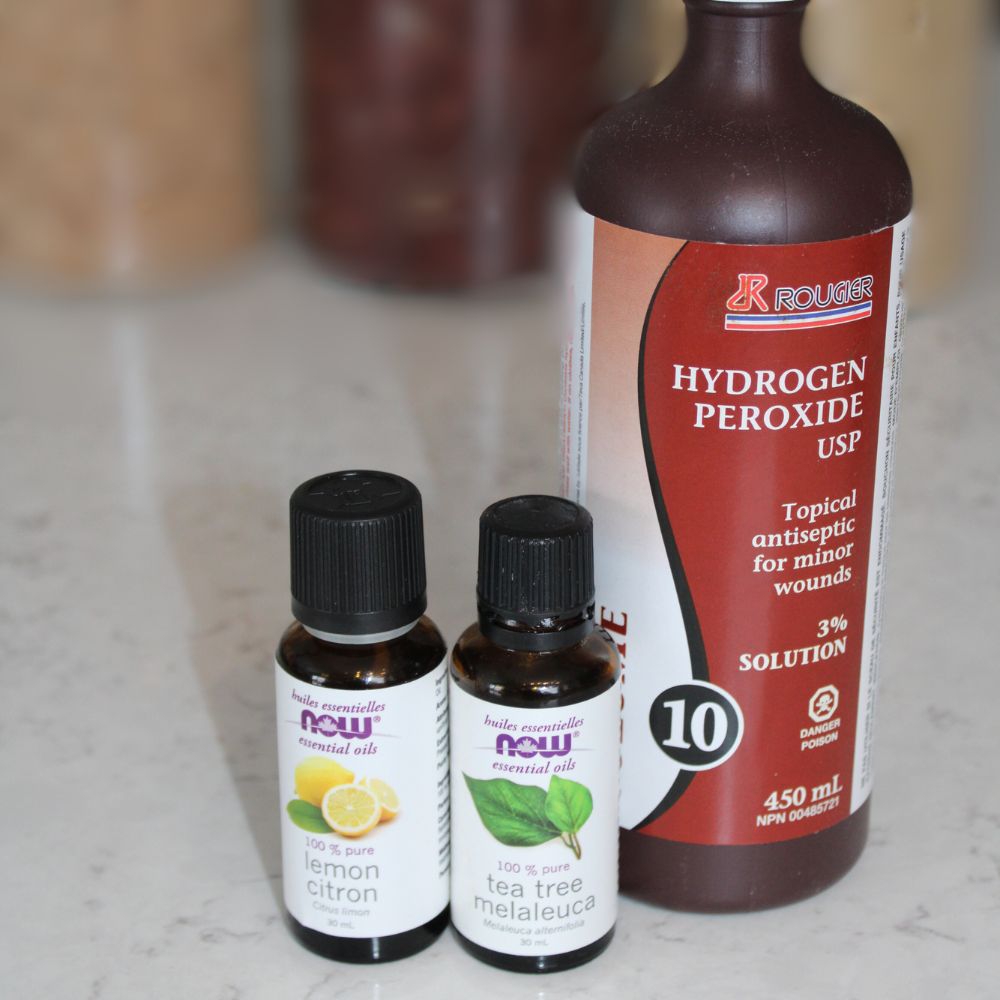
- hydrogen peroxide
- water, filtered or distilled
- castile soap
- essential oils
See recipe card for quantities.
Instructions
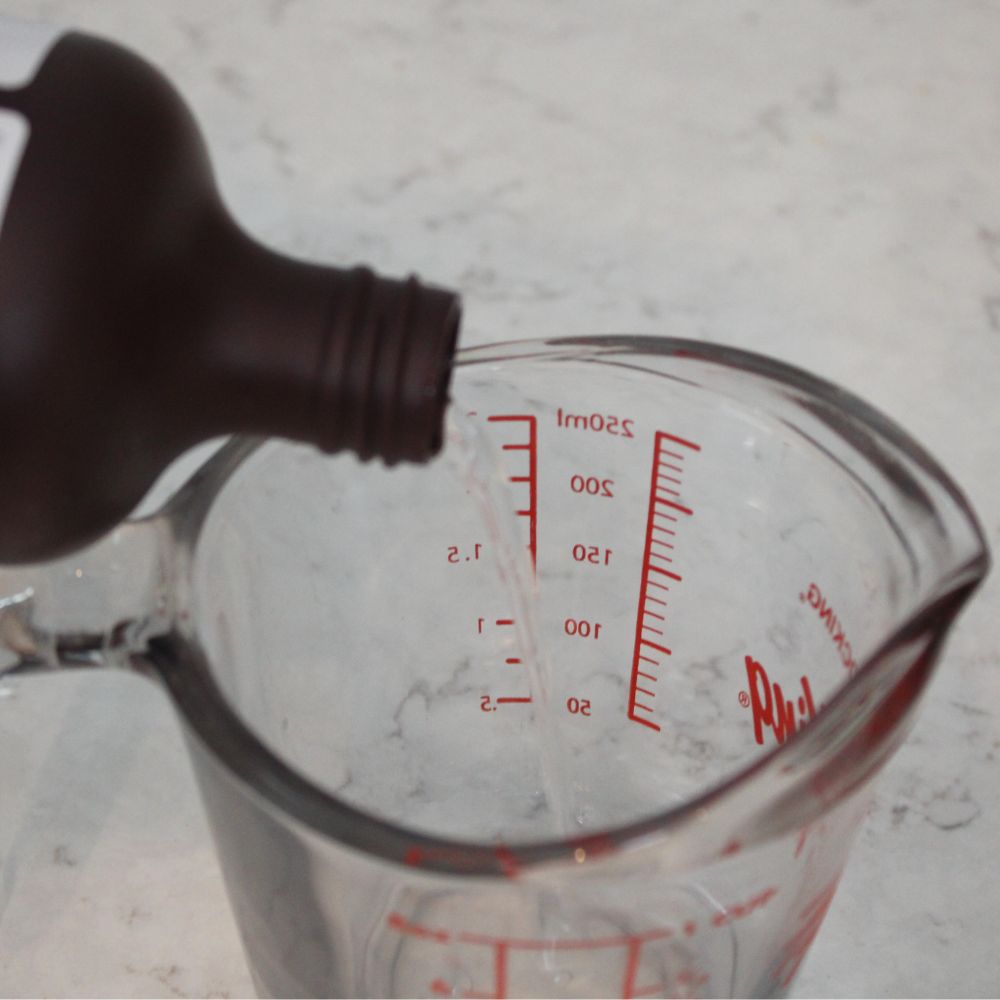
Combine 1 cup of hydrogen peroxide and 1 cup of filtered or distilled water.
Add 2-3 drops of castile soap. Castile soap is highly concentrated, so a little goes a long way!
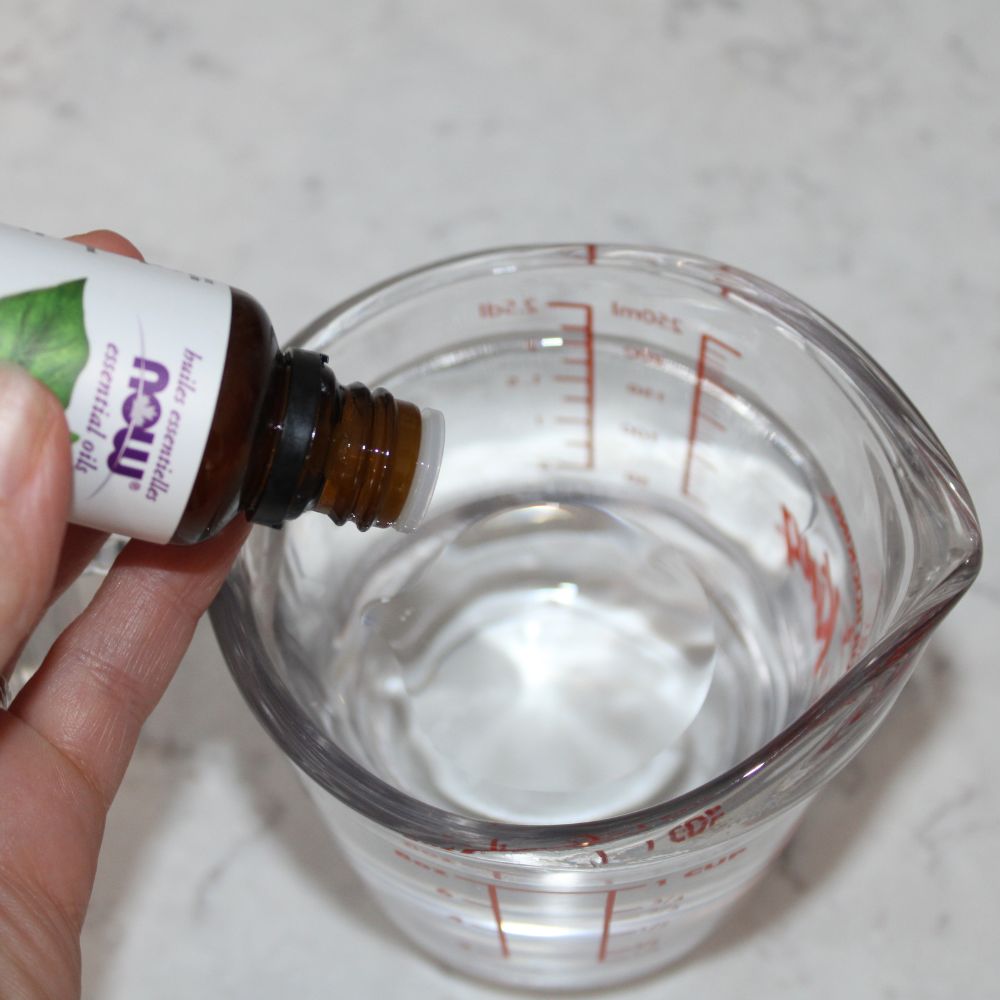
Add 30 drops of essential oil. Check out the list of essential oil blends below for inspiration.
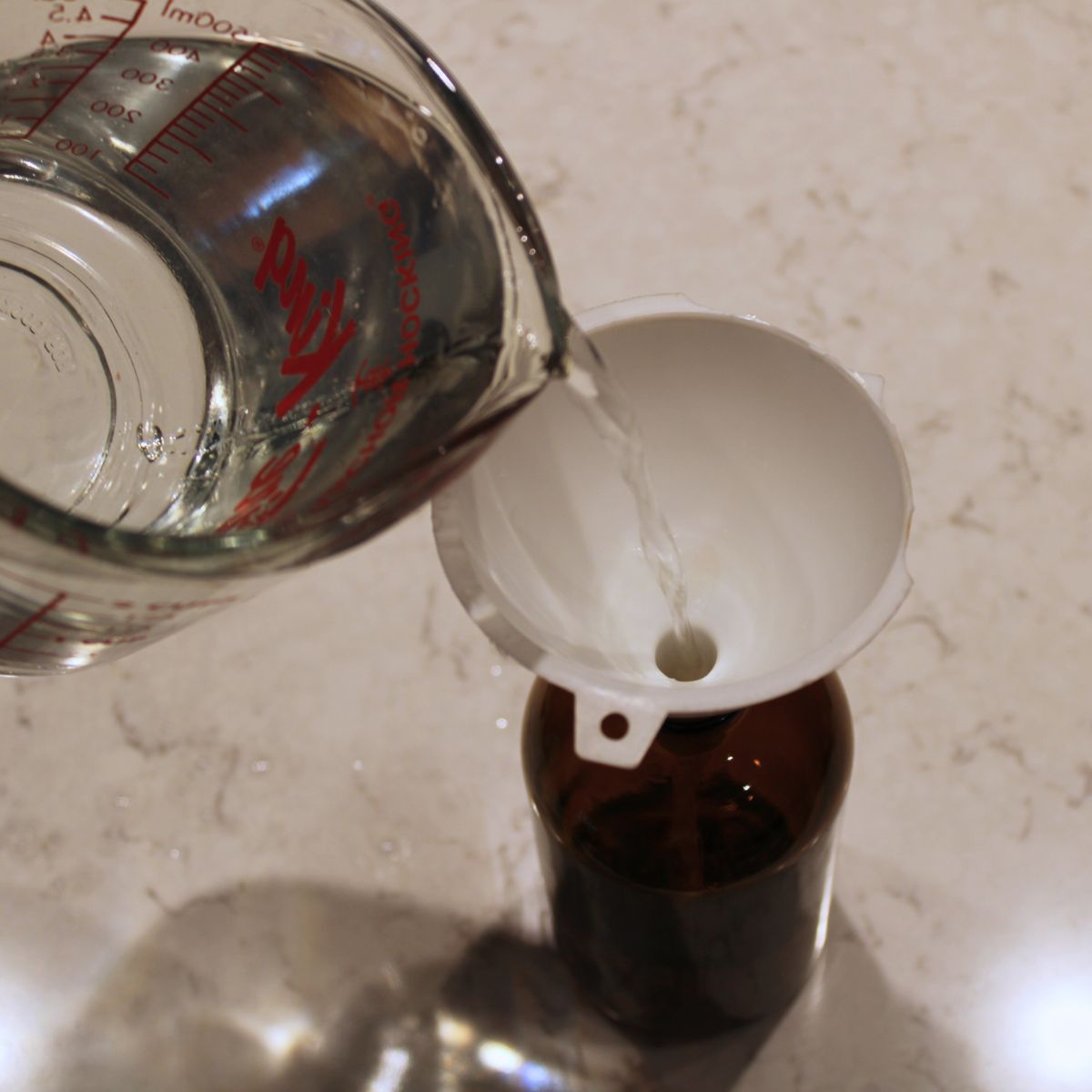
Using a funnel, transfer your granite cleaner to a clean spray bottle.

Screw the lid on and shake well. Spray onto granite or other stone surfaces, and wipe clean with a clean microfiber cloth.
Helpful Hint: Though this article frequently references granite specifically, this homemade granite cleaner recipe is also suitable for other stone surfaces such as marble or quartz. As always, patch test a small inconspicuous area before using any new product more broadly!
Hydrogen Peroxide for Cleaning Counter Tops
When it comes to maintaining the pristine beauty of your granite kitchen countertops, opting for natural solutions is key. As the main ingredient in this homemade solution, hydrogen peroxide not only serves as an effective disinfectant but also helps preserve the integrity of your granite surfaces. Unlike harsh cleaners, or natural vinegar based cleaners that can strip away the finish of your countertops, hydrogen peroxide provides a gentle yet thorough clean, making it the best choice for those seeking to take a holistic approach to home cleaning.
Essential Oils for Cleaning and Disinfecting
While lemon essential oil and tea tree oil are my top choices for keeping my home clean, there are a few additional oils to consider when preparing this all-purpose cleaner.
- Lemon Essential Oil: Lemon essential oil makes a fantastic addition to homemade cleaners thanks to its antimicrobial properties.
- Tea Tree Oil: Tea tree oil is a potent antimicrobial and antifungal, providing a natural alternative to commercial cleaning products.
- Lavender essential oil: Lavender oil possesses natural antimicrobial and deodorizing properties, which can help neutralize odors.
- Thyme essential oil: Thyme oil is a potent antimicrobial and antifungal, making it an excellent addition to any natural cleaning recipes.
- Orange essential oil: Orange essential oil would make an excellent addition to any DIY cleaner recipe thanks to its cleansing properties and uplifting citrus scent. Orange essential oil is naturally effective at cutting through grease, grime, and soap scum leaving household surfaces sparkling clean. Other citrus oils, like lime or grapefruit will have similar benefits as well.
Essential Oil Blends
Uplifting Lemon Tea Tree Blend (My Favorite!)
- 20 drops of Lemon essential oil
- 10 drops Tea Tree oil
Clean & Fresh Blend
- 10 drops Tea Tree oil
- 10 drops Lemon essential oil
- 10 drops Lavender essential oil
Citrus Spice Blend
- 10 drops Orange essential oil
- 10 drops Thyme essential oil
- 10 drops Lemon essential oil
Herbal Cleanse Blend
- 10 drops Thyme essential oil
- 10 drops Tea Tree oil
- 10 drops Lavender essential oil
Zesty & Refreshing Blend
- 10 drops Lemon essential oil
- 10 drops Orange essential oil
- 5 drops Tea Tree oil
- 5 drops Thyme essential oil
Substitutions
- Isopropyl alcohol (rubbing alcohol) – Isopropyl alcohol is effective at killing germs, bacteria, and viruses on surfaces. Using it to clean granite or stone surfaces can help sanitize them before and after food prep. I have made this cleaning spray using rubbing alcohol in place of hydrogen peroxide, and found it just as effective in keeping my stone counters clean. I find the scent of the rubbing alcohol quite strong, even with essential oils mixed in, so my preference is to use hydrogen peroxide. But alcohol would also be effective.
Equipment
- 16oz spray bottle
- 2 cup measuring cup
- funnel
- label maker (optional)
Storage
To limit exposure to light, store your granite cleaner in an amber glass bottle in a cool, dark place to prolong its shelf life. Always check for any signs of spoilage, such as a change in color or odor, and discard if the solution appears compromised.
Top tip
Use your homemade granite cleaner within a few weeks for optimal effectiveness. Over time, the potency of the ingredients may diminish, particularly the hydrogen peroxide, which can lose its efficacy when exposed to light and air.
FAQ
While lemon juice and lemon essential oil both offer citrusy benefits, they are not interchangeable in this recipe. Lemon juice contains citric acid which can etch and damage granite, quartz, and marble over time, leading to dullness and discoloration.
To ensure the safety and effectiveness of hydrogen peroxide on stone countertops, it’s important to dilute it properly. This Homemade Granite Cleaner uses a one to one dilution ratio to provide a gentle yet effective cleaning solution that won’t damage the surface. Remember to always perform a patch test in an inconspicuous area before using it more broadly to avoid any potential damage to the countertops.
Absolutely! The essential oil blends provided in the recipe are just suggestions to get you started. Feel free to experiment with other essential oils based on your personal preferences or what you have on hand. Just be mindful of the properties of each oil and their potential effects on surfaces. Always perform a patch test in a small area before using a new essential oil blend on your countertops to ensure compatibility and avoid any unexpected reactions.
More Homemade Recipes!
Looking for other recipes like this? Try these:
Easy Homemade Granite Cleaner (Alcohol Free!)
Equipment
- 2 cup measuring cup
- 16oz spray bottle amber glass ideally
- funnel
- label maker optional
Materials
- 1 cup hydrogen peroxide
- 1 cup water, filtered or distilled
- 2-3 drops liquid castile soap
- 30 drops essential oil
Instructions
- In a 2 cup measuring cup, measure out 1 cup of hydrogen peroxide and 1 cup of filtered or distilled water.
- Next, add 2-3 drops of castile soap. Castile soap is highly concentrated, so a little goes a long way.
- Add 30 drops of essential oil. Check out the list of essential oil blends in the blog post for inspiration.
- Stir gently to combine ingredients.
- Using a funnel, transfer your granite cleaner to a clean amber glass spray bottle.
- Screw the lid on and shake well. Spray onto surfaces and wipe with a clean microfiber cloth.
Notes
- The shelf life of homemade cleaning solutions can vary depending on the ingredients used. For this recipe containing hydrogen peroxide, water, castile soap, and essential oils, it’s best to use it within a few weeks to a month for optimal effectiveness. Over time, the potency of the ingredients may diminish, particularly the hydrogen peroxide, which can lose its efficacy when exposed to light and air. To limit exposure to light, store your granite cleaner in an amber glass bottle in a cool, dark place to prolong its shelf life. Always check for any signs of spoilage, such as a change in color or odor, and discard if the solution appears compromised.
